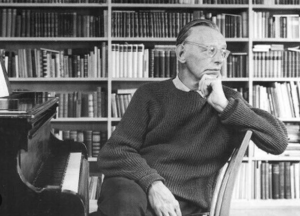Carl Orff The Composer of Musical Masterpieces
Carl Orff, a well-known German composer and educator, made an everlasting imprint on the world of classical music with his inventive works and trailblazing pedagogical methods. Orff’s life adventure began on July 10, 1895, in Munich, Germany, and was a monument to his enduring enthusiasm for music and dedication to altering music education. Carl Orff, a musical visionary who stretched the boundaries of classical music, is the subject of this book, which delves into his life, music, and pedagogical philosophy.
Early Life and Education
Carl Orff was born into a Bavarian family that valued the arts. Heinrich Orff, his father, was a naturalist and painter, and Paula Köstler, his mother, hailed from a family of professors. Carl was exposed to music and the arts at a young age while growing up in this intellectually stimulating atmosphere.
Orff’s early schooling was characterised by a strong interest in the humanities, and he studied philosophy, archaeology, and art history at first. His natural musical gift, however, could not be stifled. At the age of 16, he began studying music and eventually entered the Munich Academy of Music, where he studied composing, conducting, and piano.
Influences and Early Works
Orff’s musical journey was affected by a wide range of influences, from mediaeval and Renaissance music to early twentieth-century modernism. His interest in ancient music, folklore, and classical literature influenced his creative style significantly.
During World War I, he joined the German Army, an experience that had a tremendous impact on his life and music. Orff returned to his studies after the war and wrote his first substantial work, “Klavierübung” (Piano Exercises), in 1925. This artwork displayed his fascination in rhythm, which would become a defining feature of his work.
The Orff Approach to Music Education
Carl Orff’s contributions to music instruction are equally as important as his compositions. He established the Günther School in Munich in 1924, a ground-breaking organisation that pioneered his innovative pedagogical approach to music teaching. The Orff Approach, also known as Orff-Schulwerk, encourages youngsters to experiment with rhythm, movement, and improvisation. This technique was different from traditional, formal music education, and it had a significant impact on how music was taught in schools.
Orff thought that music should be accessible to all people, and his teaching style emphasised active, hands-on participation in music. Students were able to enhance their musical skills and creativity in a fun and inclusive setting by using percussion instruments, body percussion, and voice.
The Orff Approach has been adopted worldwide, revolutionizing music education and inspiring countless educators and students.
Compositions and Success
Orff’s most famous composition, “Carmina Burana,” written in 1936, is possibly the piece that catapulted him to international fame. This work is a theatrical cantata based on a collection of mediaeval poetry on love, fate, and the human condition. The strong and rhythmic music of “Carmina Burana” has made it a mainstay in the classical music repertory.
Other major compositions that followed “Carmina Burana” included “Catulli Carmina” (1943), “Trionfo di Afrodite” (1953), and “Antigone” (1949). His compositions frequently contained dynamic rhythms, choral elements, and a percussive aspect that set him apart as a unique and original composer. Orff’s approach to music composition was unconventional and creative, borrowing inspiration from old poetry, myths, and folklore.
Later Life and Legacy
Carl Orff’s contributions to music went well beyond his works and instructional approaches. He was a prolific writer who worked with many artists and performers. Orff continued to write throughout the later portion of his career, and his pieces remained influential and admired.
Orff’s legacy lives on via the thousands of music educators and students who have been influenced by the Orff Approach. His dedication to making music accessible and engaging has left an enduring effect on music education, and his pieces continue to be praised for their distinct and fascinating features.
Carl Orff passed away on March 29, 1982, leaving a rich legacy of music, education, and creativity. His contributions to the world of classical music and music education continue to inspire and resonate with those who seek the beauty, rhythm, and creativity in music. Carl Orff’s life and work serve as a testament to the power of music to transcend boundaries, connect people, and enrich lives.
